Last Updated on March 4, 2024
Starting anything nowadays requires a bit of research, unless you’re the type who loves to explore the great unknown. This rings true if you’re about to start working in and around the world of stock investing.
A good understanding of different rules and trends in stock investing is needed if you’re just starting out. Reading about this topic can give you a good headstart on what to try and what to avoid. Meanwhile, those seasoned few need to review, just in case anything has been added, removed or, updated.
Learning from those who excelled before you, and taking their insights on what worked and what didn’t, can help you be ahead of the game – as well as stay on it.
Whether beginner or experienced in the art of the trade, here are the 9 best books on stock investing:
Best Books on Stock Investing of 2020
1. The Little Book of Common Sense Investing
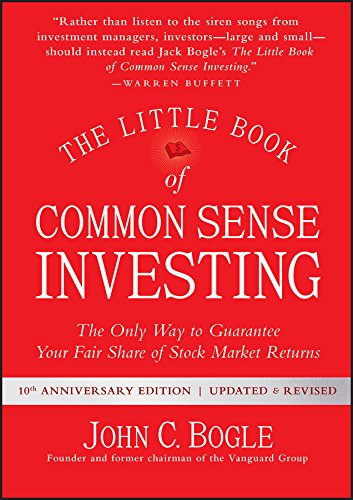
There are a few great reasons for this book to be on the list. First, this is written by John C. Bogle, known as “The Father of Index Funds”. This background alone puts him on the list of credible references for investing. Bogle also runs The Vanguard Group: one of the world’s top asset managers. Lastly, this book gives readers a glimpse of the author’s personal techniques.
“The Little Book of Common Sense Investing” devises an uncommon approach in the stock market with a lose-lose proposition. It then explains Bogle’s approaches into turning those odds in his favor. All these insights are presented with a rather simple message: keep the costs low and invest in market indexes for the long run.
2. The Intelligent Investor
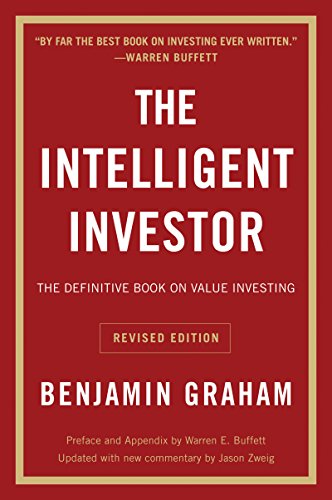
Published in 1949, this book is what has been regarded as one of the investor’s essential reads. A work so well-received that Warren Buffet called it “the best book about investing ever written”. The author in his lifetime excelled at making money on the stock market for himself and his clients while avoiding major risks. It was no wonder that Benjamin Graham earned his reputation as “the father of value investing” and “the dean of Wall Street”.
This work’s place in being a sacred text for investors shows in its 640 pages. A daunting read at first glance, you can uncover what you need to do from starting out in investing, to going at it for a long time.
3. A Random Walk Down Wall Street
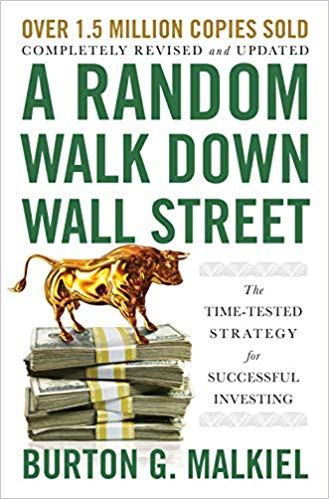
Princeton Economist Burton Malkiel covers various topics: from what to do during the different stages of an investment, to how the industry speaks towards its players. The book includes definitions of investment terms, why long-term investments will always outweigh get-rich-quick schemes, price prediction, as well as avoiding common investor mistakes.
This book presents the ideas of indexing in a volatile stock market, combining theory and practice in a smooth-flowing, easy-to-understand delivery.
4. Irrational Exuberance
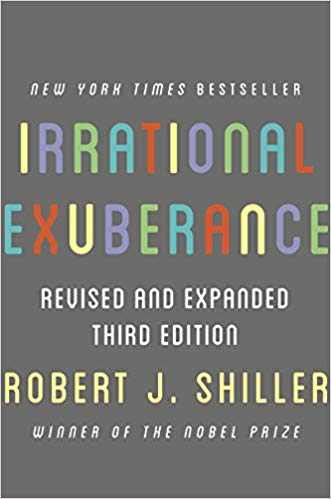
If we take the title’s definition, irrational exuberance refers to “trends that drive asset prices that are not backed by economic fundamentals”. This work is so titled because it presents a more specific sector of investments – housing costs and real estate.
Robert J. Shiller’s work delves into the emotional aspect that affected the stock market and its investors after the 2008-2009 financial crisis. It is a careful study of the various human emotions that fueled the 1982 stock market boom and how it gained further momentum after 1995.
It also foretells that similar events cause “significant rises in these markets could lead, eventually, to even more significant declines”. Applying concepts found in this work can be used in what to invest, and to tell whether some investments are in for long-term success or otherwise.
5. One Up on Wall Street
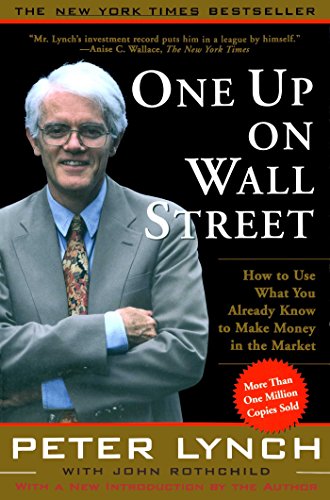
For those who would like to pick winning stocks/investments on their own over waiting on market trends, this book can help you with that.
By doing so, this can get you a possible “tenbagger” – seemingly average stock portfolios that eventually appreciate to 10 times its original price. This work stresses out that investment opportunities are everywhere, if you simply keep your eyes open.
Peter Lynch advises that you can “jump on the experts” by observing what is around you. No matter where you are, it is possible to predict which companies will succeed before the professionals do. This work, written with John Rothchild, helps you sort out winning companies by reviewing their financial statements and understanding what metrics to watch out for.
6. Common Sense on Mutual Funds
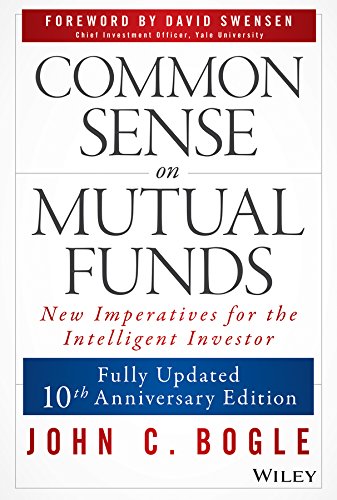
This book is another take on index funds and how they are important in long-term investment strategy. Consumeraffairs.com in 2010 rated this book on its “15 Business Books that Could Actually Help Make You Rich”. While no one can exactly replicate how some people made millions, this book helps you in making smart choices as an investor.
John C. Bogle outlines logical steps based on Thomas Paine and Benjamin Graham on how to not only better investor returns, but also how the fund industry can be improved.
While you won’t read much about the stock market, asset allocation or even beating the market, it will discuss cost structures and why they matter. This is pointed further on how index funds are a better alternative over traditional mutual funds.
7. Market Wizards
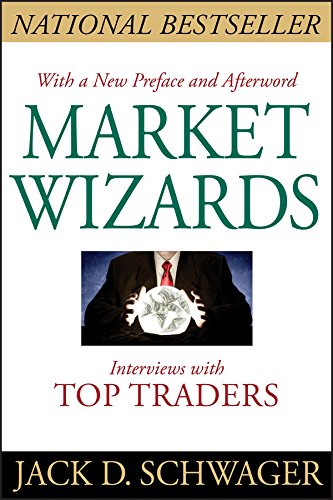
Knowing how the most successful traders worked their way to where they are now can give you insights on your quest to carve your own path in the stock market. Jack Schwager has been gathering trade secrets and words of wisdom from the likes of Bruce Kovner, Ed Seykota, Mary Schwartz, and others in this bestseller compilation.
The variety of trade secrets and techniques the interviewees shared in this book will tell you that there is no one sure path to making it big in the industry. You would find that many of the successes are about realizing mistakes and pushing forward to break through barriers.
8. Stock Investing for Dummies
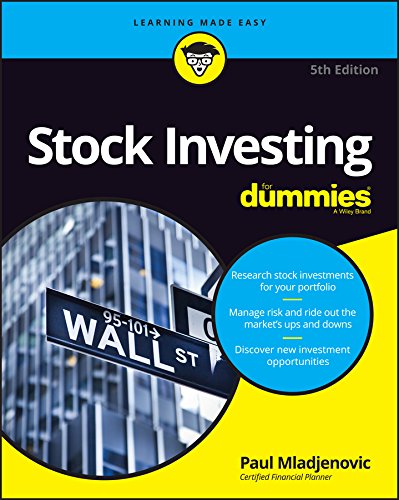
It is always better to have a bit of basic knowledge in the rapidly-changing game of stock investing. Paul Mladjenovic starts with a primer on Exchanged-Traded Funds, along with their rules, investment vehicles, and more.
Further into the book, you will find how changes in technology bring in new ways of doing business along with their products and/or services. You will also learn how to keep yourself safe in the volatile playing field of finance and how to get definite growth in your stock.
The book is mostly written for beginners. This work spans from the basic to more specific points, such as finding a stockbroker to choosing between ETFs and mutual funds. Numerous resources as supplementary data can be found throughout the book.
9. The Bogleheads’ Guide to Investing
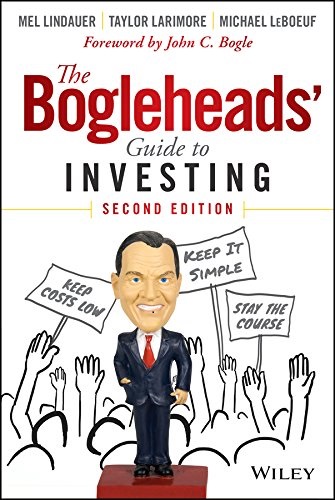
John C. Bogle’s works on the field of investing has sparked interest in a lot of people. This simple guidebook to financial well-being is made from the ideas of Boglehead founder Taylor Larimore, as well as contributions from Morningstar forum cohorts Mel Lindauer and Michael LeBoeuf.
This book takes on a few topics, such as what makes a sound financial lifestyle and how to diversify your portfolio. Another main point features investing early, as well as knowing what you are buying. You will also read the main theme of Bogle followers to keep your costs and taxes low, and to preserve your buying power.

